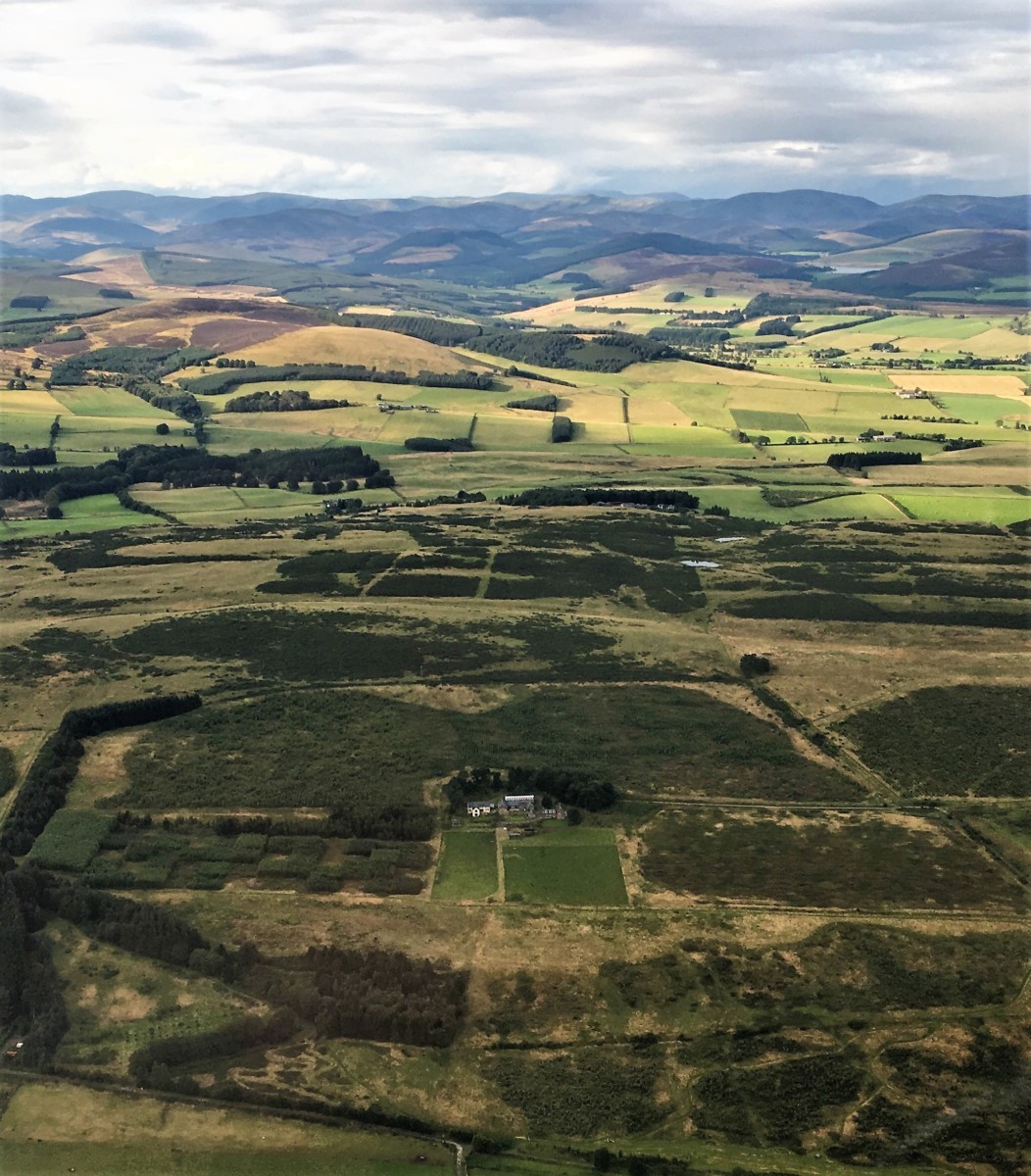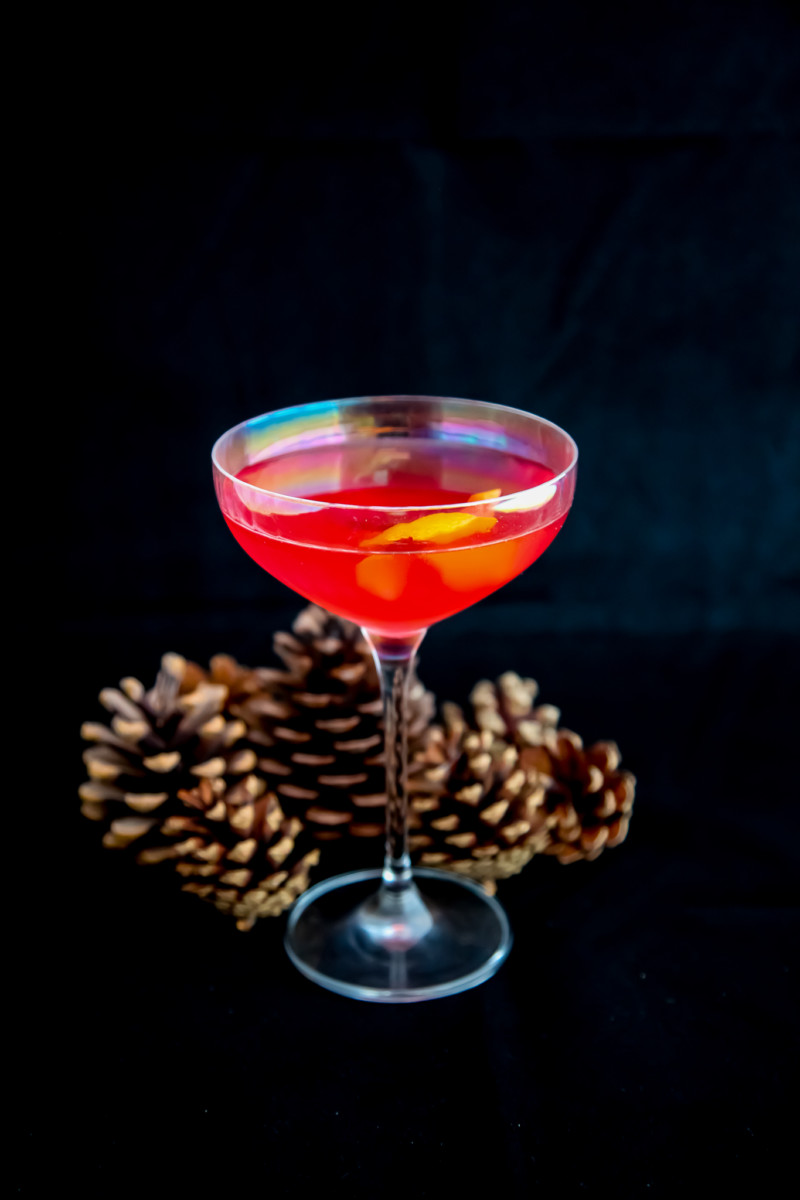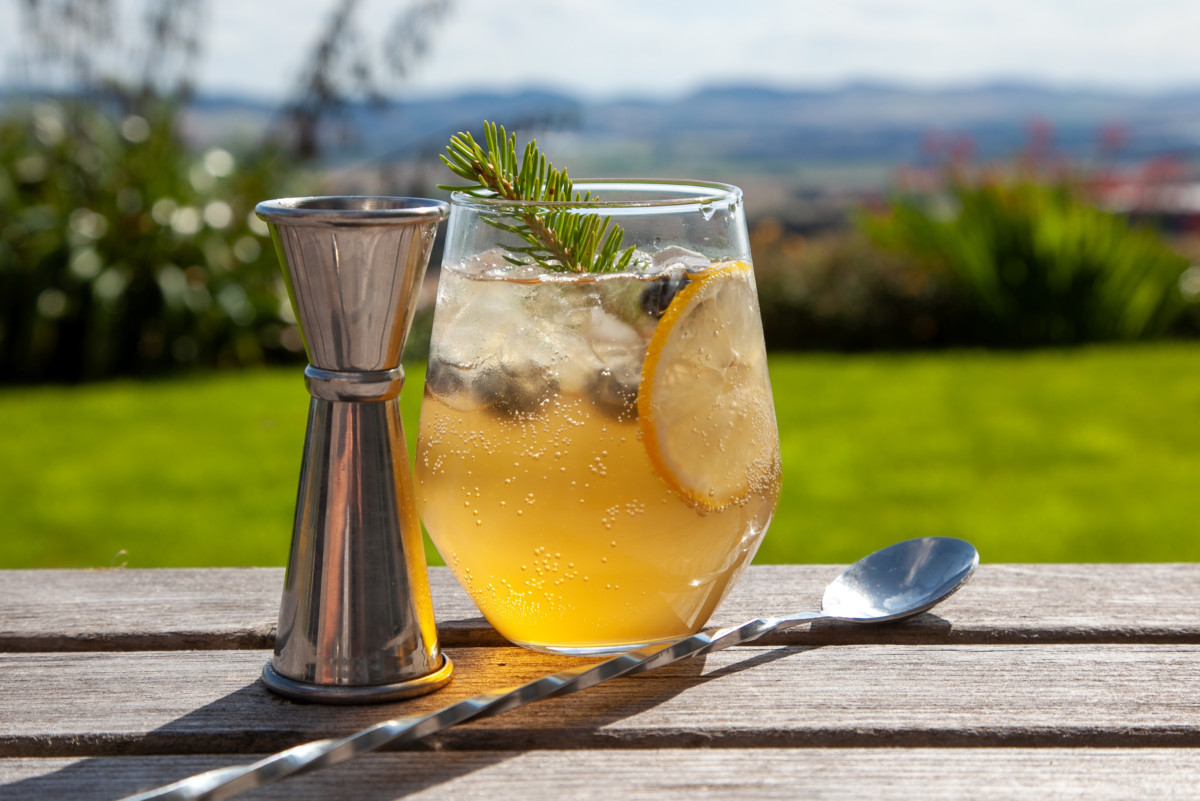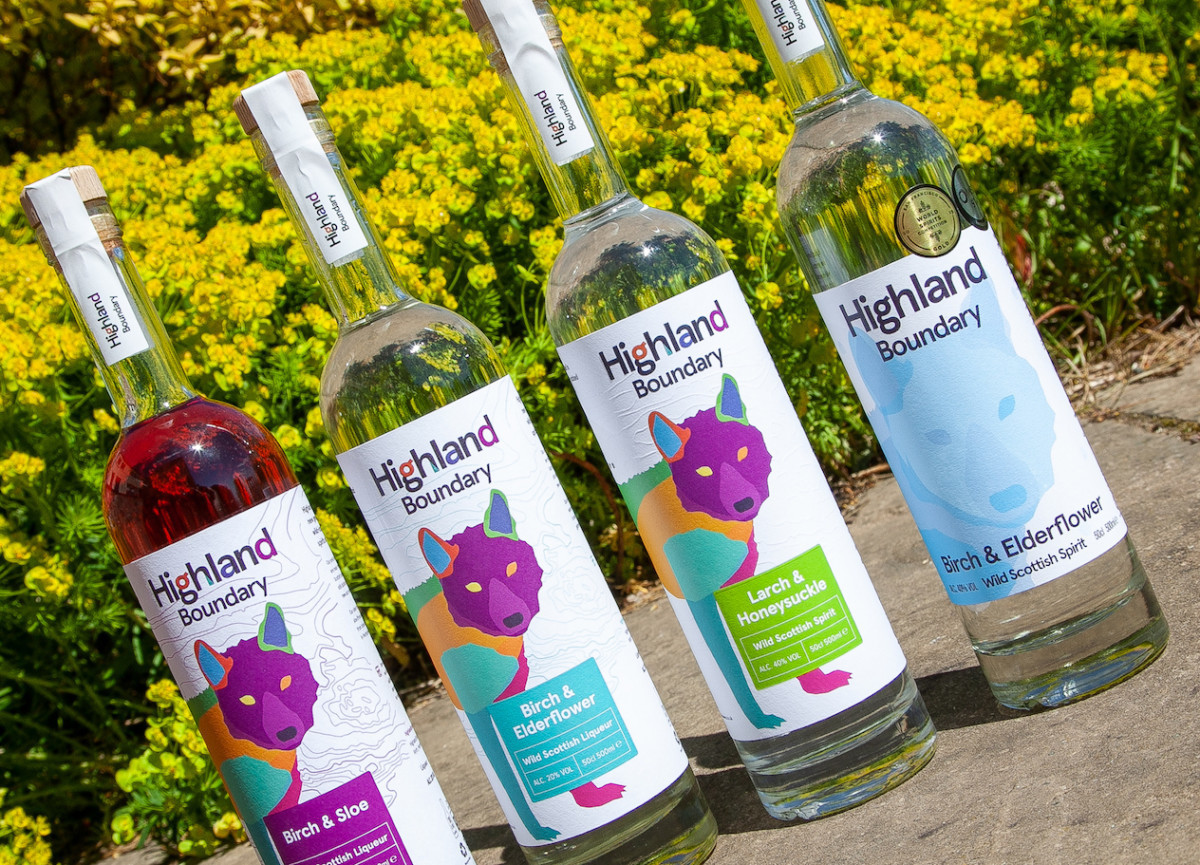Highland Boundary
Can you tell us where you are based in the Tay Bioregion?
Alyth, just outside the town on Alyth Hill which overlooks Strathmore.

Can you talk a bit about yourself or your group, what you do and the journey you have been on to get to where you are today?
We are so privileged to own a small farm where we run tourism, food and drink and consultancy businesses. We welcome guests to our self-catering farmhouse and encourage visitors to help on the farm, feeding hens and helping look after the sheep. We have a small farm distillery, making botanical spirits using only wild ingredients hand picked on the farm and neighbouring woodland. Our spirits and liqueurs showcase the unique flavours in Scotland’s wild plants.
What has been the inspiration or motivation to do what you do?
We are inspired by the amazing natural world around us in Scotland and the biological systems on which our ecosystems depend. We are biologists by training and the understanding of these systems and how we can support them is the basis of all we do.

What kinds of expertise or skills do you have or have learned that help you in what you do?
We have skills in business leadership and practical skills in agriculture, distilling and conservation.
How would you describe your relationship to your place and to the natural world around you that you live and operate in?
We think of ourselves as stewards of the land and ecosystem where we live and our aim is to inspire and encourage others to take a holistic and ecosystem approach so to help regenerate the lost biodiversity and ecosystems of Scotland.
We are still enduring this terrible Covid crisis and I wonder if we could talk a bit about the other crises that are now front and centre in all our lives – the climate and biodiversity crises. How are they informing what you do? How are they impacting you or the way you think about what you do?
Alleviating these twin crises are at the centre of everything that we do. If we can inspire others to do things differently and put nature at the centre of all our decisions then we will have achieved our life’s ambition. Our motto is a quote from Mahatma Gandhi “Be the change that you wish to see in the world.”

Are there top priorities around these crises that you think everyone should be focusing on?
Yes, I think everyone should be doing what they can, whether that is rewilding their garden, changing their energy supplier to a more sustainable provider, volunteering with projects and organisations involved in climate action and biodiversity restoration. All these small things add up. Everything each of us can do matters.
How do you feel about the future in the light of these crises?
I feel optimistic that we are at a turning point in history because I feel that as a result of the pandemic the world has woken up to the fragility of all life and the damage that humans have done to the natural systems that support our ecosystems.
Who do you draw inspiration and guidance from? Are there people showing great leadership in your field?
Nicola Sturgeon, Kate Raworth, Greta Thunberg.
What does “community” mean for you and what you do?
Community is all those where we live but also those around the world who share the vision of a regenerated natural world.
Can you talk a little about the networks that you are part of that support you in what you do?
One of the interesting aspects of the variety of work that we do is that we have a cross-sectoral view across agriculture, forestry, food and drink and tourism sectors and can see how these need to interact more in order to create the right kind of change.
Are there aspects of any of those networks which you think need changing or developing? Do you see a need for more cooperation between networks? What might that look like?
Only by taking a nature or ecosystem focused approach to all of our systems do we have a chance of working towards a sustainable world.

Is anything you do affected by local or national political policies?
Everything! The economic and political systems at both local and national levels that rule our lives affect the way in which our land is owned, used and the way in which business can (or cannot) function within these systems.
Are there things you would develop or love to do if resources were unconstrained or managed differently
Plant more trees! We are working to develop the non-timber forest product sector (which includes but is not limited to wild food) so that we can develop rural businesses and livelihoods that are regenerate forests.
In your journey to where you are now has there been a particular ‘OMG’ or ‘aha’ moment that really shifted your thinking or energised you to take action in some way?
Can’t really think of one particular Aha moment just a long-term ambition to change the world!
Bioregioning Tayside was talking to Marian Bruce co-owner of the Highland Boundary.